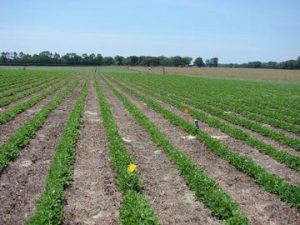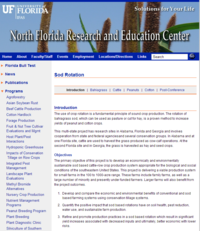Sod-Based Crop Rotation
Sod-Based Crop Rotation Program
Overview

Since 2005, the District has provided grant funding to the University of Florida’s Institute of Food and Agricultural Sciences (IFAS) for continued research and public outreach on the Sod-Based Crop Rotation Program.
Under this program, acreage is planted in a rotation: two years of warm-season perennial grass followed by two years of row crops. These practices have been shown to reduce water irrigation demands and reduce nutrient and pesticide application rates while increasing crop yields.
To date, Sod-Based Crop Rotation farming techniques have demonstrated up to an 80-percent reduction in irrigation needs and a 50-percent reduction in pesticide and nitrogen usage, all while significantly improving production yields.
Benefits
- Reduce irrigation, as well as fertilizers, pesticides and fuel
- Increased soil organic matter and water retention, soil productivity
- Less expense for farmers, higher crop yields
Sod-Based Crop Rotation Resources

IFAS Sod Rotation Website
For more information related to the Sod-Based Rotation Program, visit the University of Florida’s Institute of Food and Agricultural Sciences‘ (UF/IFAS) Sod-Based Rotation website.

